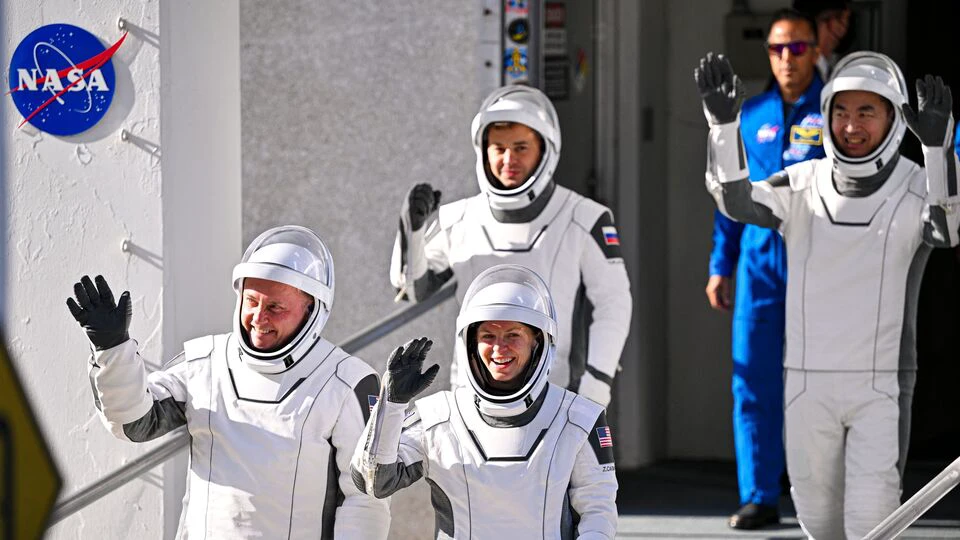SpaceX has just launched its Crew-11 mission into space, and along with it, a ‘secret’ member: disease-causing bacteria. Or, at least, such bacteria will be growing aboard the ISS very soon.
The crew will study the effects of microgravity on bacteria-killing viruses.
According to Space.com, the bacterial strains involved in the study are E. coli, Salmonella bongori, and Salmonella typhimurium. They will be studied by NASA’s Crew-11 mission, which successfully blasted off to space on Friday (August 1).
‘Genes in Space’
The study-developed by scientists at the Sheba Medical Center in Israel in partnership with the US-based space tech company SpaceTango-will examine how microgravity affects the growth of certain bacterial species that cause diseases in humans, Space.com reported.
NASA said the ‘Genes in Space-12’ – competitions in which students in grades 7-12 design DNA experiments that are flown to the space station – examines “the effects of microgravity on interactions between certain bacteria and bacteriophages (viruses that infect and kill bacteria).”
Bacteriophages are already used to treat bacterial infections on Earth, the US space agency said.
‘Decreasing dependence on antibiotics’
An expert said that the experiment could help establish a foundation that could focus on “potentially decreasing the dependence on antibiotics.”
“This investigation could establish a foundation for using these viruses to treat bacterial infections in space, potentially decreasing the dependence on antibiotics,” Scott Copeland of Boeing, and co-founder of Genes in Space, said.
How will the study be conducted?
Researchers will grow different strains of bacteria under microgravity (in space), Space.com reported.
Researchers will analyse how space conditions impact gene expression related to virulence and antibiotic resistance.
The bacteria will be stabilised and frozen at -80°C. The samples will then be returned to Earth to evaluate how they’ve grown differently from the same bacteria grown on the home planet.
This is the second ARC Space Lab experiment, and the first that will take place at the ISS.
What do researchers expect?
Researchers behind the latest ISS-and-bacteria mission reportedly hope to bring home data that will help curb the spread of infectious disease, or at least help experts find ways to stop bacteria from developing antibiotic resistance.
This is significant as antibiotic resistance in bacteria is said to be a major public health problem. It happens when certain disease-causing bacteria develop the ability to counteract the effects of antibiotics, making drugs ineffective in treating infections caused by those bacteria.
Meanwhile, Scott Copeland said, “Phages [Bacteriophages] produced in space could have profound implications for human health, microbial control, and the sustainability of long-duration remote missions.”
“Phage therapy tools also could revolutionise how we manage bacterial infections and microbial ecosystems on Earth,” he added.
Besides, this experiment will allow researchers, for the first time, “to systematically and molecularly map how the genetic expression profile of several pathogenic bacteria changes in space,” Ohad Gal-Mor, Head of the Infectious Diseases Research Laboratory at Sheba Medical Center, was quote by Space.com as saying.
“The insights we gain will augment our understanding of infectious disease risks in space travel, and also expand our knowledge of gene regulation and bacterial physiology in general,” he said.
Moreover, data on genetic changes in bacteria will hopefully provide researchers with more clues about how they act once inside a human, whether it’s how fast they spread or their likelihood of getting around our treatments: both in space and on Earth.
What’s already known?
Scientists have already studied how a lack of gravity affects the way bacteria grow.
Besides, research from NASA is already underway to study bacteria in space in general.
“We know that space conditions affect bacterial behavior, including how they grow, express genes, and acquire traits like antibiotic resistance or virulence,” Ohad Gal-Mor said.
According to the report, human genes sometimes express themselves differently in microgravity conditions.
Scientists have linked such an environment to the expedited loss of muscle seen in astronauts, and even their likelihood of developing skin rashes.
